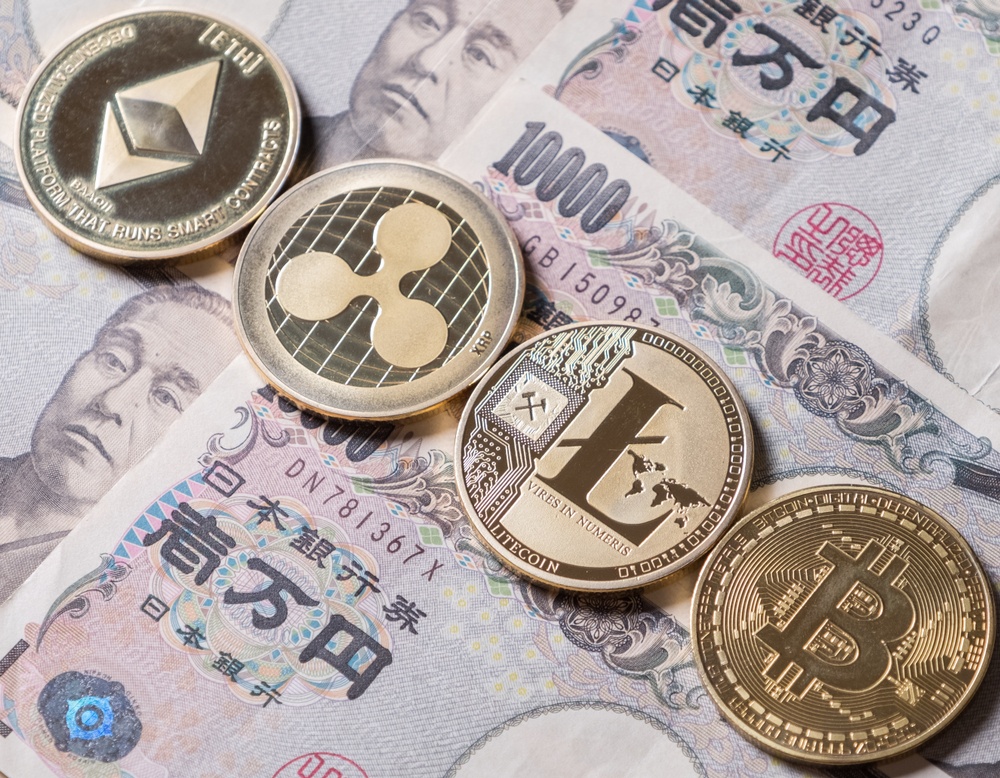Japan Unleashes 200 Tax Specialists to Chase Undeclared Cryptocurrency Gains

Japanese crypto adopters who skip capital gains taxes on their investments will have to watch out. | Source: Shutterstock
By CCN.com: Japan is adding to its impressive compliance charge on cryptocurrencies by honing in on tax evasion. Through more stringent laws tracking cryptocurrencies, the Asian country will gain better access to data from exchanges.
The National Tax Agency (NTA), the country’s tax authority, will deploy about 200 specialists to detect undeclared income gained from cryptocurrency trades. They are also focusing on monetized videos and other new economy staples.
Cases of undeclared income from online platforms, including but not exclusively from cryptocurrencies, have forced the hand of the NTA. Japan is renowned for leading the way in compliance and regulation of cryptocurrency, so it is unsurprising this falls into their gambit.

Targeting online cryptocurrency tax evasion
The 200 specialists will be divided into project teams spread among 12 offices nationwide from July. They will assist in tax evasion investigations, while also accumulating and sharing expertise with tax officials.
Cryptocurrency gains will be under the scope, as will video streaming earnings. However, tax evasion also occurs through money gained from private room lodgings, online auctions, and various points that can be converted to cash.
The new legislation will also allow tax officials to order the release of the information, such as the names of top-earning clients, under certain conditions from exchanges.
“The fact that we are able to seek and confirm client data under the force of law will become a powerful weapon,” a senior National Tax Agency official said .
Progressive control
Despite the strict and rigorous control of cryptocurrency in Japan, the regulators are also some of the most progressive and forward thinking.
In April of 2017, Japan made headlines by implementing legislation that made bitcoin and virtual currencies legal tender. However, the law did not change the taxing of virtual currency. In the bill, virtual currencies were described as asset-like values to be used in exchange for other items and transferred via electronic data processing.
More recently, Japan has been at the head of the G20 charge for a global cryptocurrency exchange register. The G20 nations will be meeting in Fukuoka, Japan next month. Crypto-related challenges such as customer protection and money laundering will be discussed at the summit.
The biggest issue concerning the G20 is a potential loophole money launderers can exploit through bitcoin and other cryptocurrencies.
Looking for their cut
The move to direct cryptocurrency exchanges to provide information to the NTA is not new. In December last year, it was reported that the NTA would be empowered to demand that exchanges offer data concerning clients who are suspected of tax evasion.
This followed from the tax authority being called to make the laws of taxation of crypto assets easier. In October last year, a committee of tax experts in Japan called for the simplification of the country’s cryptocurrency tax filing process.

Reasons for tax avoidance have been determined by through complicated process of declaring gains. The committee reported that calculating gains for taxation purposes is a complicated affair and this discourages some owners of declaring their holdings when filing tax returns.
Taxation remains a significant concern for may cryptocurrency regulators across the world. Japan’s decision to crack down, yet still be progressive in tax, could lead to global precedents being set.
Cryptocurrencies are well known to require precise regulation, and a large portion of that is taxation. If this aspect of control can be achieved to a high standard, it will go a long way to legitimizing the space.